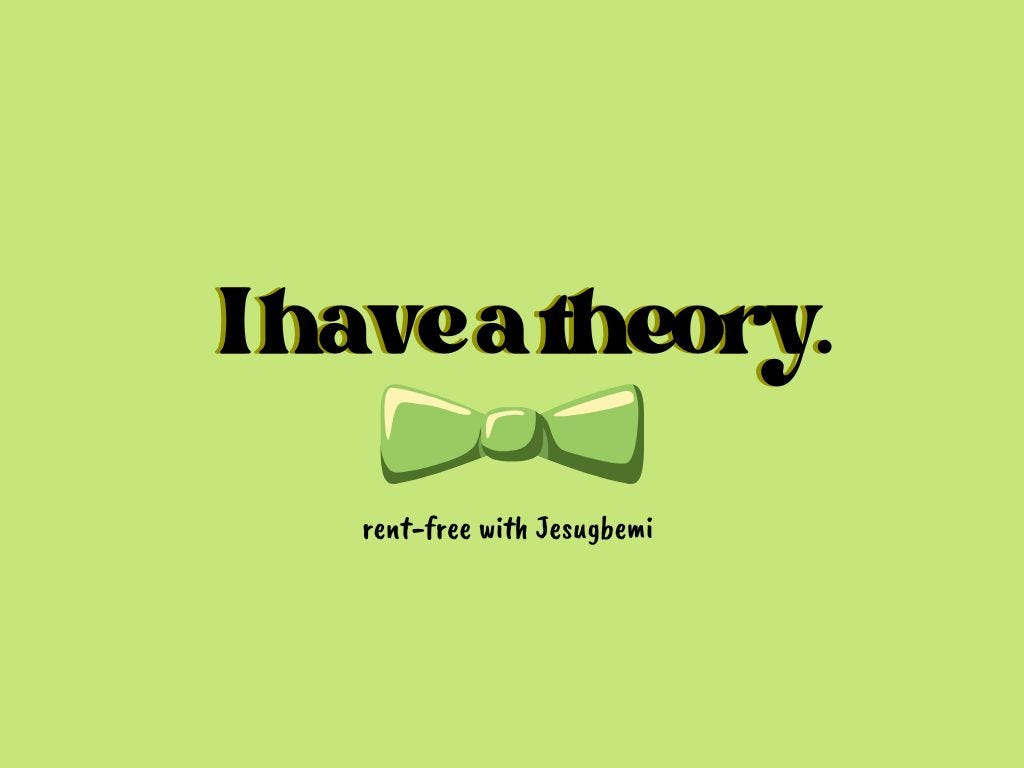How many times have you used Maslow’s Hierarchy of Needs as basis for an argument?
One of the aspects I enjoy about studying psychology is the vast array of theories and ideas to which I'm exposed. Some are outright bizarre (everything from Freud and Jung), while others make enough sense, like Maslow’s Hierarchy of Needs.
For the uninitiated, cue crash course Abraham Maslow was a psychologist, and he propounded one of the most quoted psychological theories. His theory categorises human needs into a five-tier pyramid from the most basic to the highest: physiological needs, safety needs, love and belongingness needs, esteem needs, and self-actualisation needs. As lower-level needs are satisfied, individuals move up the hierarchy, with self-actualisation representing the highest level of fulfilment. It’s like video games; you only move up a level once you’ve conquered the previous. (You can read more about it here).
Just like every other theorist, Maslow’s idea is what it is - his idea. This means it is predisposed to be heavily biased, which in turn means it does not apply to everyone. Maslow observed and analysed individuals around him, wrote a paper, and his idea caught on (the power of writing!). Of course, this is not an essay to criticise his theory, but I believe the reason why it caught on is because of how simple, straightforward, and easy to understand it is. We know we all have needs, and it makes sense to want to fulfil basic needs before going on to more complex needs.
💡Learning opportunity: Maslow was clear about his idea in writing and it caught on because of this. Clear ideas equal clear writing equals opportunities for ideas to spread.
So Maslow’s theory is not the final bus stop of the subject matter. In fact there are other theories of needs birthed to address Maslow’s limitations.
I love Theories!
With studying a social science, it is as though I am smack in the middle of history - I have a front seat to the ideas, thoughts, and theories of people who lived thousands of years before me. I can draw a line from how humans thought then to now. There is a progression; there are lessons to be learnt and processes to be replicated (because really there is nothing new under the sun).
🍏These days, I have begun to appreciate science more. Most things that we deem as normal came as a result of someone’s curiosity.
My curiosity has been sparked and I view the world with a different lens now. I ask why, why, why and I want to know more, more, more. I’m more intuitive and I make a point to notice patterns; Why does is get harder to make friends as I grow older? Why was it easier to bond with my former roommates than my present? Why can I remember events from infancy? Why do conversations with friends reveal my repressed knowledge? Why is it easier for me to recall all I have studied while writing an exam than while studying?
Of course, many of my questions have been answered eons ago and my novel ideas aren’t actually novel but it doesn’t take the thrill.
💬 How empty is theory in the presence or facts - Mark Twain
Even though theories are not fact, it is an indication to the fact that humans are curious, thinking and willing to experiment. Theories point to facts as a fact can only become a fact because it was once a theory. Take that, Mark Twain!
A few weeks ago, I had the longest conversation with someone about a theory that he has. In fact, this post was originally about his theory but I have decided to save that for later because there is still a lot to unpack.
In the meantime, I’m dying to know what theories you have. What are you thinking about? What keeps you up at night? What patterns have you noticed? I really want to know, tell me!
I have a theory that you will share, comment, and like my piece because you enjoyed it💚



There is no pyramid! This changes everything 😂😂😂😂
I think of Maslow a lot. I think we as a society are largely on the lower levels of the pyramid. That's probably why we can't afford some intellectual ventures